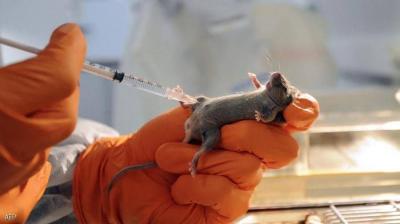A new scientific study has found that frozen and dried sperm from mice, stored on the International Space Station for six years, showed no damage to its DNA and proved capable of being used in fertilization processes. According to the study published in the journal "Science Advances," it is possible to preserve mammalian sperm on the International Space Station without damage for nearly 200 years.
According to scientist Sayaka Wakayama from Yamanashi University in Japan, the new study revealed the effects of "space radiation" on DNA and the potential for causing mutations. In their experiment, researchers froze samples of sperm from 12 mice, which were placed in small, lightweight capsules and transported to the International Space Station.
What distinguishes this experiment, according to what Wakayama told the British newspaper "Independent," is the wide spectrum of radiation in space compared to Earth, which includes heavy ions, protons, and electromagnetic waves from solar flares. The scientists regularly examined small portions of the samples, some of which were returned to Earth after nine months, while two groups remained on the International Space Station for two years and nine months, and for five years and ten months consecutively.
When researchers tested the samples using tools to measure the amount of radiation they absorbed and conducted tests to assess DNA damage in the cell nucleus, they found that extended periods on the International Space Station did not lead to DNA damage in the sperm. The study indicated that sperm cells that were reactivated after thawing led to the formation of embryos when injected into the ovaries of female mice.
The findings of the scientists are significant regarding the possibility of mammalian reproduction in space, including humans.




